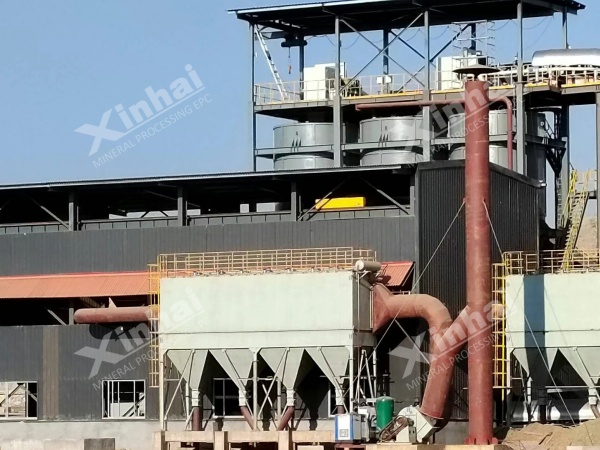If you want to know more information (such as product/process price, etc.), please contact us 24-hour telephone
In the context of the surge in global demand for lithium resources (average annual growth rate of more than 30%) and the booming development of the new energy vehicle industry, spodumene efficient lithium extraction technology has become the core competitiveness of the industry. In this paper, we will systematically analyze the industrialized production process from spodumene to battery-grade lithium carbonate, combined with process innovation and equipment selection points, to provide lithium industry chain enterprises with landing technology solutions.
1. Coarse and fine crushing process
Adopting jaw crusher + high pressure roller mill combination, crushing the raw ore to ≤25mm, reducing energy consumption by 18%-22%.
Equipped with X-ray sorting technology to remove low-grade ores in advance and improve the grade into the mill.
2. Ultra-fine grinding technology
Vertical agitator mill is used to replace the traditional ball mill, achieving a grinding fineness of -0.074mm ≥95%.
Optimization of grinding media (such as ceramic balls) to reduce the risk of iron impurity mixing

| Technology | Traditional Solution Pain Points | Process Upgrade Programs |
|---|---|---|
| Pharmaceutical system | Poor selectivity of traps | Compound chelating traps (e.g., HY-318), lithium recovery increased to 85% + |
| Flotation Equipment | High energy consumption, uneven bubble distribution | Adopting inflatable flotation column, microbubble generator saves 30% energy |
| Intelligent control | Manual adjustment lag | Implanted AI algorithm, real-time monitoring of slurry pH/potential, automatic dosing |
Option 1: sulfuric acid roasting method (market share of 75%)
Core parameters: 800-1100 ℃ high-temperature roasting, lithium conversion rate ≥ 92
Process flow:
Ore acidification roasting → water leaching → decontamination (remove Fe³+/Al³+) → evaporation and crystallization → sodium carbonate lithium precipitation
Advantage: adapt to low-grade ore (Li₂O ≥ 1.2% can be), the by-product gypsum can be resource utilization
Option 2: Sulfate roasting method (emerging technology)
Innovative breakthrough: adding potassium sulfate additives, lowering the roasting temperature to 650-800℃, saving 40% of energy consumption.
Application scenario: especially suitable for high Mg/Li ratio ores (Mg/Li≥8:1)
1. Gradient removal technology
Step-by-step removal of Ca²+/Mg²+ (oxalic acid precipitation) → deep boron removal (resin adsorption)
2. Membrane separation and concentration
Adoption of nanofiltration membrane system, lithium ion retention rate >99.5%, water consumption reduced by 60%.
3. Dynamic crystallization control
Through the online particle size monitoring, to ensure that the lithium carbonate D50 control in the range of 3-5μm
4. Calcination process optimization
Rotary kiln segmented temperature control (200 ℃ → 600 ℃ gradient temperature), to reduce crystal defects
5. Magnetic foreign matter control
All process 304L stainless steel equipment, product Fe content ≤ 10ppm
Exhaust gas treatment: roasting flue gas is denitrified by SCR and desulfurized by double alkali method, and the emission reaches standard.
Waste water reuse: establish MVR evaporation system, realize 95% process water recycling.
Value-added slag: tailing slag preparation of ceramic granules/cement raw materials, additional revenue of 11.01-16.51 US dollars per ton.
Xinhai provides global customers with full life cycle services from small pilot experiments → process package design → whole plant delivery, and has helped 23 lithium ore processing plants to complete the beneficiation tasks and improve the recovery rate of beneficiation and lithium concentrate grade.